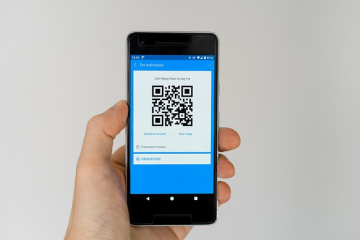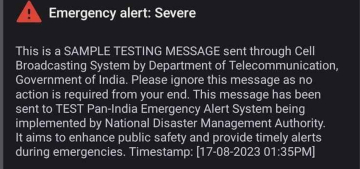As the technology advances the scams and fraudster also evolve. India today holds 10th position in the World Cybercrime Index, exposing increase in frauds and cybercrime across the country. With the digital expansion in the country, where people of different age group adopt smartphones, digital banking, and online payments, fraudsters are taking advantage with sophisticated and diverse tactics. As per the reports, India sees millions of scams every year, resulting not just financial loss but also emotional distress.
The most common types of scams include imposter scam, credit/debit card fraud, phishing, digital arrest, investment scams, lottery and prize scam, tech support scams and many more. The scammers don’t stop, they find new ways every day to scam innocent peoples. They use fear, urgency and greed to trick you and cause financial loss. So, staying updates about the scams and its kinds is important. With the right tools and awareness, you can stay one step ahead of the scammers.
In this blog, you can learn about common frauds to watch out for, warning signs of possible fraud and scams and how you can protect yourself and your family from falling victim to scams.
1. Imposter Scam –
The fraudsters often impersonate to be someone else to scare you or to earn your trust. These scams start with a phone call, text message, or email, where fraudster try to persuade you to share personal information or send them money. Scammers here also pretend to be your relative or your friend asking for financial assistant, or have a romantic interest in you before scamming you. They also pose being some government agency or company representative. All these is done using AI.
Safety measures – Be careful when an unknown number tries to connect with you and ask for your personal information. Before clicking on a link, always make sure it came from a trustworthy source. Check the organisation the person claims to be from, as a legitimate government agent or employee won’t mind the delay and also appreciate that you are trying to be careful.
2. Phishing –
The scammers calls, text or mails you asking for personal details, like the bank details, account info, passwords, credit/debit card number and OTP, claiming to be from a trusted source. They scam you in order to steel your identity or money.
Safety Measures – Do not share any information to them. Carefully check the authenticity of the link sent to you. Most legitimate companies will not contact you on the phone asking for your personal information.
3. Digital Arrest –
The fraudsters impersonate as police or CBI officials and call you accusing of the crimes. They use fake audio and videos fabricating police station and courtrooms, threating you of digital arrest on video calls and demand money.
Safety Measures – Police or government officials never conduct arrest or interrogations over calls or demand for any immediate payment over the phone. So, on receiving such calls disconnect immediately and report such number to local police or cybercrime portal.
4. Investment scams –
These scams happen when you pay for tips, seminars or courses that promises to teach you how to make money or promise to invest on your behalf. They also promise high guaranteed returns through fake investment scheme, cryptocurrency, stocks, bonds, real state or another asset. Posing as financial advisors or representative of reputed firm, and using fake website, app, or social media ads, they get you to pay but don’t deliver anything of value in return.
Safety measures – Never pay for program that promises unusual high or guaranteed returns. As investing always comes with risk. Be careful if anyone tries to pressure to invest quickly or promises large returns or secret tips of passive income. Always check credentials with SEBI and certified financial bodies and consult a trusted advisors before investing.
5. Lottery and prize scam –
The Scammers lure you into winning a grand prize, via call or messages. They ask for your name, address, social security number or other personal information claiming to send your winnings. They might also ask you to pay an upfront fee to receive your prize or ask for bank information and card details to sweep your money.
Safety measures – If you haven’t participated in any competition or lottery, you can’t win one. Legitimate lotteries don’t request advance payment to claim your win. It is best to ignore messages about any sort of prizes or winnings, especially when they ask for your personal information or payments.
6. Tech Support Scam –
The Scammers here scam you by sending a fake pop-up warning that resembles error messages on the device. They trick victims of the viruses or issues present in the computer and charge for fake repairs and services. They also ask for remote access to your device, then launch various Windows components and utilities and convince victim that their computer has problems.
Safety measures – Never give your password or grant remote access of your device to unknown callers as the tech support you don’t expect is a scam. Ignore the pop-up messages that ask to call tech support. If you’re worried about a virus or other threat, call legitimate tech support channels for assistant. Use Updated antivirus and security software.
7. Job Opportunity Scam –
This scam involves fake work-from-home, franchise or other opportunity, luring fresh graduates and job seek with fake job offers. In ruse to collect your personal information, they might ask you to fill the application. Additionally, ask for payments for applying, using their placement services, or as training fees or deposits. The overpayment scam, where scammers might also pay you money, and ask a part of it as refund, saying they accidently paid you extra. This works as they original payment gets reversed after some days but you were asked to sent them money using irreversible methods, like gift card.
Safety measures – Always verify job offers with company’s official HR. Turn down those job offers that lack official communication or interview process. Never pay to submit a job application or for training. Never sent money to someone unfamiliar who promises you a job or one who claims on sending extra money to you.
8. TRAI Impersonation Scam –
The scammers pretend to be officials from the Telecom Regulatory Authority of India (TRAI), claiming your number is linked to illegal activities. They threaten to suspend you phone service and to be more real, transfer your call to another caller pretending to be a cybercrime officer. They intimidate you and pressurize you in sharing your personal details and also paying fines.
Safety Measures - Only the telecom operators can disconnect phone services, TRAI cannot, so hang up the call and verify with your telecom customer care. Report Unsolicited and suspicious calls to cybercrime authorities and never share OTPs, personal or banking details on such calls.
9. Online Shopping Scams –
E-commerce sites that list offer products at very low products are fake. This also involves those websites that overcharge you or charge too less for products or services and they never deliver.
Safety Measures – Look for genuine websites while doing online shopping, also check to see the spelling errors in the URL, as the site might be a scam. Avoid those products that are very low priced with countdown timers or limited-time sales, you landed through a social media ad. In case you decide to make a purchase, use a secure payment method with buyer protection, which you can later dispute the charge and hopefully get your money back if the seller is a scammer.
10. No-Interest Loan with Mandatory Life Insurance –
A sophisticated financial scam, targeting individuals seeking loans. Scammers posing as financial institutions representative, reach out to victims with offers of interest-free credit. But for this credit they must first buy an expensive life insurance of premium 50,000/- annually. The disbursement of loan is delayed beyond the insurance policy’s free-look period. Once the free-look period lapses, the scammers become unresponsive, leaving victims burdened with unwanted insurance policy and the obligation of future premium payments.
Safety Measures – Legitimate lenders do not mandate the purchase of insurance policies as a condition for loan approval. Always confirm the identity and legitimacy of the financial institution or representative offering the loan. Review all the documents, especially insurance policies, and understand the terms before signing. Scammers often create a sense of urgency, pushing victims to make hasty decisions without thorough verification.
Stay alert:
- Never share your credit card/ debit card details, pin, OTP, password, CVV number or any personal details to anyone on call, messages or through any other means.
- Never click on unknown links that came from unknown number via message, or emails or download any unknown apps.
- Do not respond to fake calls or messages offering false promises of rewards or money. And pay upfront fees for a promised price.
- Don’t fall for deals that are “Too good to be True” because if it sounds too good then it’s definitely fake or deals that pressure you to act quickly.
- Be careful when someone plays on your emotions or claims urgency in the situation.
- Never click on links or scan QR codes as these can lead you to scammer’s malicious website or give them access to your device.
Report fraud:
- Report online fraud on the National Cyber Crime portal at cybercrime.gov.in, or call on the helpline number 1930.
- On receiving any malicious/ phishing/ suspicious e-mails or call, please report them to Sanchar Sathi at sancharsaathi.gov.in
Conclusion
The scammers are getting smarter every day. From fake call or message asking about your personal and bank details to people pretending to offer unbelievable returns on your money. And creating a panic situation for you to act quickly. And once you do, your money is gone, and so is the scammer.
We might still fall for a scam, no matter how careful we are, when caught off guard. So, staying cautious and updated regarding the scams is important. Staying calm and double-checking everything is necessary when money is involved.
The best way to stay safe is b staying informed and alert. Sharing information about the scams with your family and friends, protect them from not falling in the traps. Though, we cannot scam the scammers but yes, we can be smart and updated, so we don’t get scammed by them.
For more information on IT Services, Web Applications & Support kindly call or WhatsApp at +91-9733733000 or you can visit https://www.technodg.com











































































































































































































































































